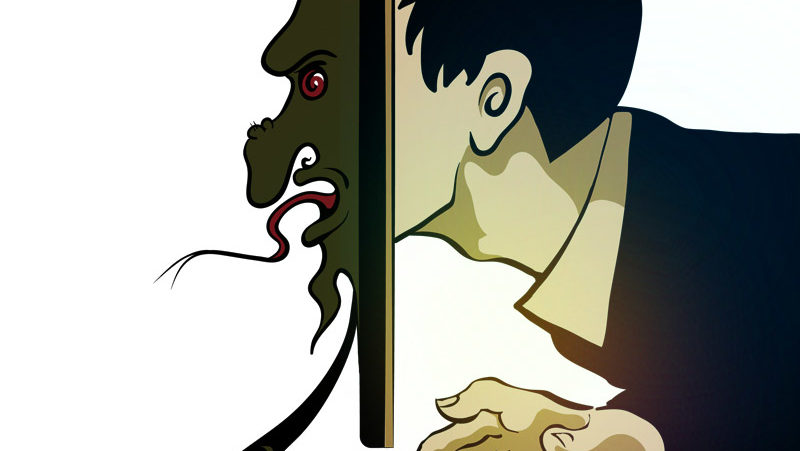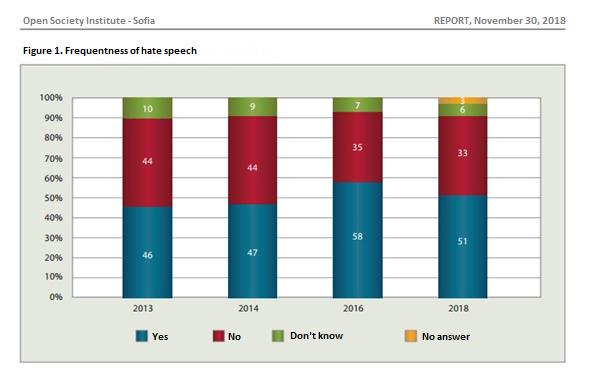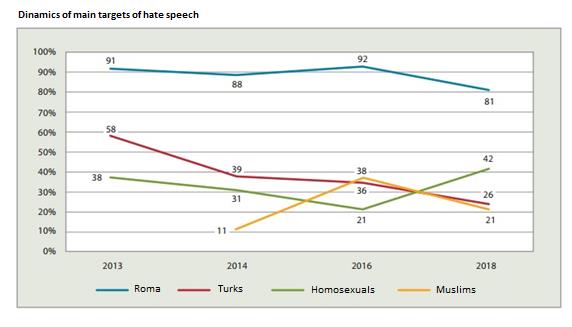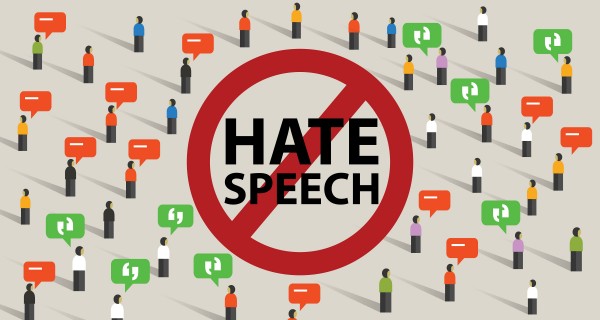News

What, who and where do we hate most of all?
21 December 2018What, who and where do we hate most of all?

To what extent hate speech exists in the Bulgarian public life? Is its intensity increasing or decreasing during the recent years? Where do we meet it most often and towards whom it is mostdirectly addressed?
We find the answers of these and many other questions in the official report of Open Society Institute – Sofia entitled “Public Attitudes towards Hate Speech in Bulgaria in 2018”.
The report is from November this year and is prepared on the basis of a national representative survey, held in 2018.
It can be seen from the analysis that during the almost past calendar year the hate speech is widespread in the Bulgarian public life. Almost half of the people, who took part in the last from the total of four surveys, say that over the past 12 months they had heard in the public environment statements related to hate towards representatives of ethnic, religious or sexual minorities.

The figure is re-published from the official report of the Open Society Institute – Sofia and represents in a diagram the answers of the question “In the last 12 months, have you heard public statements expressing disapproval, hatred or aggression against members of ethnic, religious or sexual minorities?”
“During 2018 unlike the three previous surveys the hate speech against homosexuals is much more significant phenomenon than this against Turks (26% of the respondents who had heard hate speech during the past year say that it was against Turks), and exactly twice as often met than hate speech against Muslims (21% of those who had heard during the past year hate speech say that it was against Muslims).” – we read in the report.
With regard to the hate speech, used against the Muslim minority – the report shows that during 2014 and 2016 an increase was recorded in hearing hate speech against Muslims and foreigners, which undoubtedly is connected with the increased inflow of migrants to the country and the weaknesses in the national migration policy.

However in 2018 the reporting about hate speech decreased against all of the surveyed groups – Roma, Turks, Muslims and foreigners, with only one exemption: hate speech against homosexuals doubled compared to the levels from 2016. During the present year, 2018, homosexuals are the second affected minority group right after the Roma. It is understandable that this increase is related to the fierce debates over the Istanbul Convention that took place during the year.
It is interesting but not surprising that among the emerging trends regarding the use of hate speech is that for the growing importance of Internet as a place for spreading hate speech. This is also observed among the general population in Bulgaria, but most clearly is seen as a trend among the young people at the age between 18 and 29 years old. The importance of television as media for spreading hate speech steadily decreased, by contrast of the Internet. Despite little, during the recent years the importance of public places – restaurants, cafes, public transport, as a place for spreading hate speech has also grown.
According to the experts all this shows that the measures for preventing the spreading of hate speech on Internet have to be a priority in one comprehensive national policy to curb this phenomenon. They recommend that the local authorities at settlements also to take their responsibility for limiting hate speech, because they are responsible for the order at the different public places where manifestations of this phenomenon can appear.
The report of Open Society Institute – Sofia on “Public Attitudes towards Hate Speech in Bulgaria in 2018” ends with the recommendation to strengthen the role of the law enforcement authorities and at the same time to pay attention to the importance of the educational system for overcoming the problem with hate speech. This can happen through promoting tolerance, civil education and media literacy, as well as by undertaking corrections in the rules on administrative regulation.
